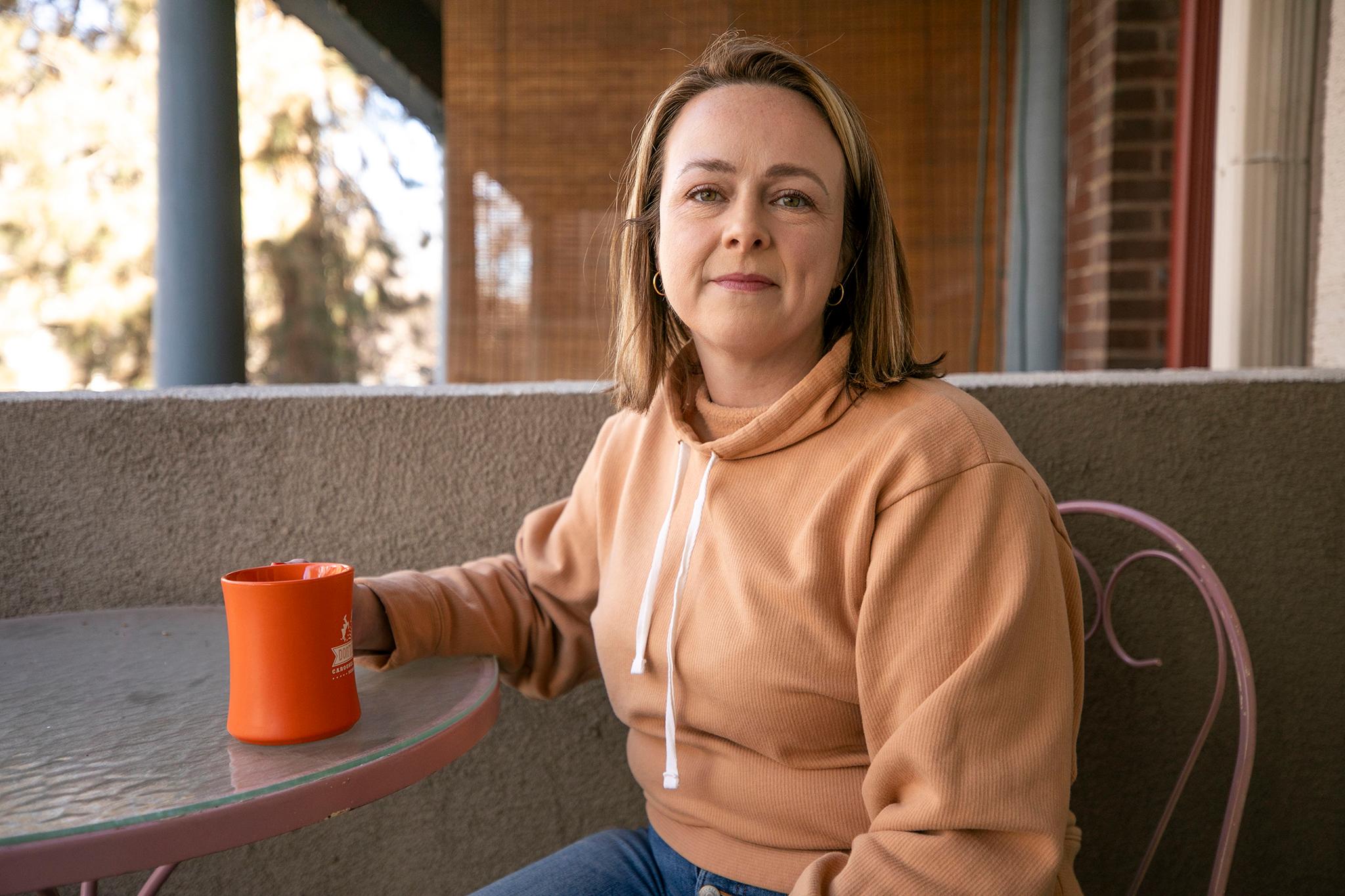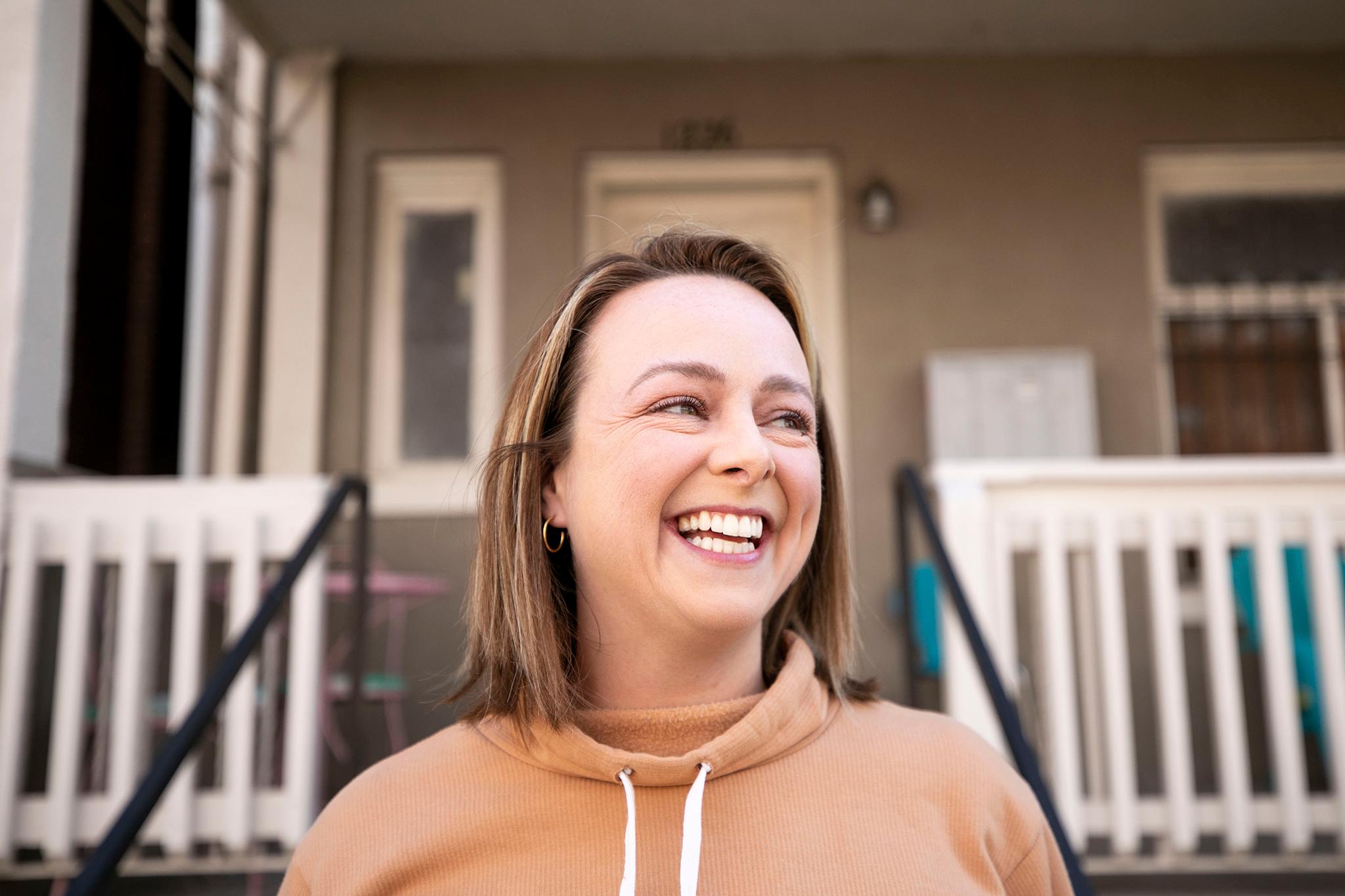Shannon Hoffman was among the first candidates throwing their hats in the ring for a city council seat last year. Her interest in running for local office developed due to her work in social activism.
She's vying for the District 10 seat with housing, tenants' and workers' rights, transparency and sustainability in mind.
"I really felt like we needed someone who would vote with integrity...and lead around some of the most pressing issues in our community, especially around housing," Hoffman said.
In her bid to represent District 10 and her values at council, she'll take on incumbent Councilmember Chris Hinds, along with Matthew Watkajtys, Margie Morris and Noah Kaplan.
Hoffman moved to Denver in 2017 and has since immersed herself in the nonprofit and activism circles.
She currently works for the Montbello Organizing Committee and has previously worked at Hope Tank, a gift shop and social enterprise that works with nonprofits across the city, and was the former project manager for "From Allies to Abolitionists," an Emancipation Theater project focused on housing for those experiencing homelessness and police brutality.

Hoffman said during her time with Emancipation and founder Jeff Campbell, she worked on the Justice for Raverro campaign, an effort that began after Denver artist Raverro Stinnett was severely beaten by Allied Universal security guards at Union Station in 2018. The campaign was part of the reason City Council terminated their contract with Allied in 2020.
Hoffman said she also worked on improving treatment of those experiencing homelessness through her work with Emancipation. Hoffman said she realized then that the city was spending too much on sweeps when it could have been spending money on housing for people.
"Housing is our city's most pressing issue," Hoffman said. "I think we need folks who will really take leadership on that and also look at some innovative and creative ideas. The primary way that we build affordable housing right now in this country is through low-income tax credit projects and that just doesn't have to be the only way that we have affordable housing."
Hoffman said an innovative way to create more affordable housing is by creating a social housing developer, a tool that is being considered in Seattle and could become reality if passed by voters there this year. Hoffman said having a social housing developer would decommodify housing, essentially removing the profit aspect of development. The developer would be the city, the buildings would be owned and operated by the city and they'd be mixed-income properties. Whatever profits would be made would go into a pot to create more properties.
Hoffman said this method ensures units stay affordable and the units could offer a range of affordability. It also eliminates the timely aspect of developers applying for tax credits and not getting them immediately.
"When we decommodify [housing], then the priority is not the profit of the developers, the priority is truly the needs of our community," Hoffman said.
Another important issue for Hoffman is what she calls her sustainable planet umbrella, which is a two-fold approach: improving transportation and "protecting, preserving and adding more green space."
In terms of transportation, Hoffman said the city needs to look at more viable ways of getting Denverites around town, which could look like investing more in RTD and looking into more circulatory routes, like as the HOP Bus service in Boulder or the Connector in Montbello, Globeville and Elyria-Swansea.
The additional investment can also include paying RTD employees more and providing them with better benefits such as more mental health access.
For the green space preservation aspect, Hoffman said environmental issues have a trickle-down effect that may encroach on families' health, happiness and careers.
"I am the granddaughter of a coal miner who died from black lung and that situation led to my mother's family living in poverty because they were denied any kind of financial retribution from that coal company," Hoffman said. "I think when we're thinking about environmental issues, we also have to be thinking about how they're affecting working people and families."
Besides housing and sustainability, Hoffman said she also wants to focus on being a voice for the district through co-governing.
For Hoffman that looks like listening to folks who show up to council meetings -- and those who don't -- and ensuring everyone has a voice when it comes to new policies.
Hoffman said that could be implemented through advisory committees within District 10 focused on issues such as housing, safety and transportation.
"The council person is really the conduit and vessel for the community," Hoffman said. "The community brings the best ideas forward and we legislate them."
Currently, Hoffman said she's working on listening to the community and advising them through an event series called "How s*** gets done in Denver," which focuses on explaining policies and the inner workings of city government. Hoffman said the idea came from Hope Tank owner Erika Righter, and it spawned from the desire of regular folks to get involved in city politics.

Hoffman said some of the first things she'll begin working on if elected is rent control -- which would be allowed in Denver if a bill at the legislature becomes law -- and renters' rights especially when it comes to issues surrounding heat, working air conditioning units and other problems renters could face with poor landlords.
But there's still an election to be had.
"We're talking to people and saying a renter is running for city council... and what's been powerful is for folks to say 'Oh, you're just like me and you're running for office,'" Hoffman said. "There's this hopefulness of like, 'Hey you'll carry these issues that are affecting my life forward because I'm dealing with them, too. I also have a window in my apartment that's being held up by duct tape.'"













